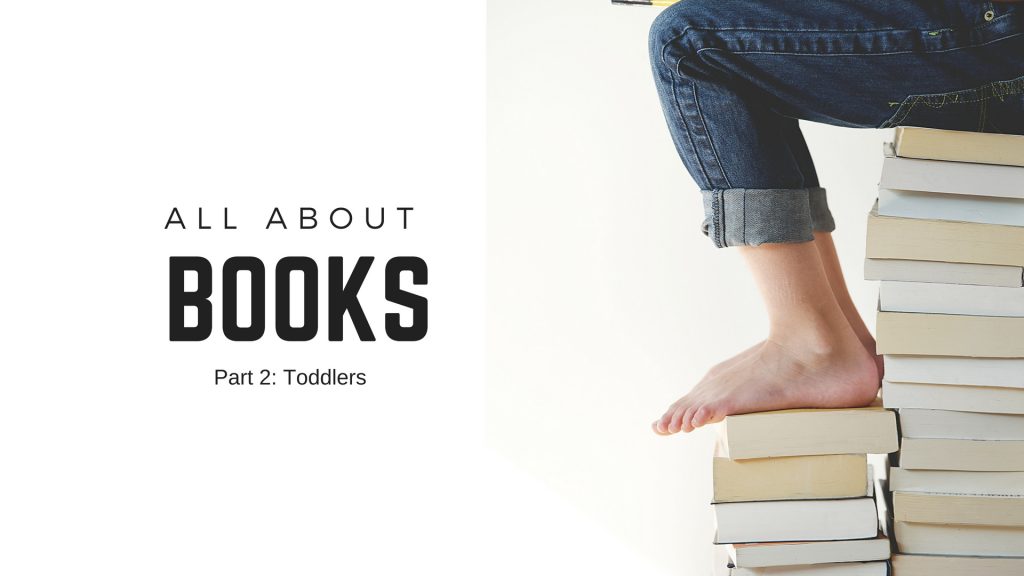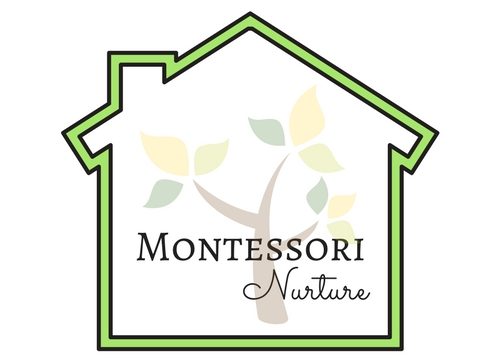
Happy June! It has turned hot and humid here in Pennsylvania this week. We don’t have air conditioning at our house and since it’s too hot to go out into my garden I’ve been enjoying sitting with our new little kitten while reading. She’s quite playful so I don’t always get a lot of reading done until she tires herself out. It’s been a long time since we’ve had a kitten in the house so I don’t mind!
I’ve also been having a blast getting to know some new children at Montessori Toddler Camp. We’re into week two now. One of the areas of the classroom is always a little library. I love to see which books the children want me to read over and over and over. In my last post I listed a few things to think about when choosing books for children under six. Here’s that list:
- Find books with beautiful illustrations.
- The words should use rich language. Children from 0-6 are in a sensitive period for language. They have a capacity to learn words almost effortlessly during this period of life. Let’s give them the proper names for everything and help them learn to describe what they see in multiple ways!
- Keep it concrete. Choose stories and books that are about real life.
- Match the word/illustration ratio to your child’s developmental stage. This means few words and simple illustrations for babies and increasing words and more complicated illustrations for older children.
Today I wanted to talk a little about books and Toddlers. I don’t love the term toddler although we use it quite a lot in the U.S. When I say toddler, I’m speaking of a child who is walking (9-18 months) until about 2.5-3 years. As always, I like to think about the developmental stages of this age group before choosing toys, activities and books. So, what do we know about toddlers?
- They are in the sensitive period for language. Children learn words and the rules of sentence structure during this time. The more language rich their environment, the better.
- Toddlers continue to learn through their senses. We want to try to incorporate all the senses into their learning as much as possible. Hands on activities are best.
- Toddlers are refining their gross and fine motor skills. They are always on the move.
- This age group learns through repetition. They do not tire of things in the same way they will when they are older.
- These children are concrete learners and are very self centered (in a good way). They want information that pertains to their world.
How do we use this developmental information to help us choose books? During this time children will often look at books on their own as well as with you. Help your child learn to turn pages and to treat books with respect. Having a little shelf or basket with 6-10 books available at a time in a common area or in two parts of the house will give your child lots of opportunities to look at books and for you to read to him or her. You will have to decide when your child is ready for books that use paper instead of cardboard. If your child is rough with her books you may choose to keep the paper books out of her reach until she is ready to use them without ripping or throwing. Watching you take care with the books is the best way to teach a child how to care for them.
Take trips to the library if your child is able to handle it. Our local library has a lovely two tiered half circle seating area surrounded by books in the children’s section. When my boys were toddlers they only wanted to jump off this instead of looking at books. I decided they were not yet ready for the library and left them home with my husband while I searched the library for books to bring home. When they were older they loved going to the library to pick out their own books and had the self restraint to resist jumping of the seating.
At this age still try to find books that talk about daily life, that have a few more words and may have more complicated photos. Toddlers love to look at the photographs and drawings in books and to talk about them. This is all language learning. The more language you can provide to your young child the more success he will have when he begins learning to read himself. Knowledge of vocabulary words is such an important step in reading readiness.
Here are a few suggestions for Toddler books:
- My First Body Book (DK) – children love to point to the different body parts in the book and then on their own bodies.
- My First Things that Go (DK) – vehicles of all sorts to look at and talk about. Take it in the car and see if you can find the real vehicles that are in the book.
- Richard Scarry’s Cars and Trucks from A-Z (R. Scarry) – A precursor to the classic book Cars and Trucks and Things that Go.
- Noisy Farm (Usborne) – Buttons to press to hear the sounds of the farm. Also check out Noisy Train, Noisy Orchestra and Noisy Diggers.
- Birds (Kevin Henkes) – Beautiful illustrations by Laura Dronzek and a simple story about all the characteristics of birds: color, shape, size, movement and much more. We have so many birds in our backyard this book was a great one to use when thinking about the birds in nature and learning to look at all their characteristics.
- 1-2-3 ZooBorns! (Scholastic) – Children love looking at wild animals and photographs of cute baby animals are even better! This is also a counting book.
- My Dog Spot (Jack and Norma Levin) – This is a lovely book about a dog named Spot. The illustrations are simple and lovely and there is some amazing language used throughout the book ( He laughs by yiping, Yipe-yipe.). The story may seem so simple (Spot likes to chase cats and birds and rabbits and put his head out the window when Daddy takes him for a ride in the car.) but this is the stuff of real life that toddlers can’t get enough of!
This is just a very short list of amazing books that you can read to your young child. Take every opportunity to bring books into not only your toddler’s life but also into your own. Seeing his parents enjoy reading will encourage your child’s enjoyment, too.
I hesitate to recommend reading books on electronic devices whenever possible. Often the device is more appealing than the story. Your child also loses the fine motor practice of using her pincher grip to turn pages and to have the sensory experience of the paper in her hands. These are important learning experiences and steps to later skills such as writing.
Next week I’m going to talk about books for preschoolers. I’m hoping to blog in a different format so stay tuned! I hope you are having a relaxing and enjoyable summer. Now, back to my book (and the kitten)!
